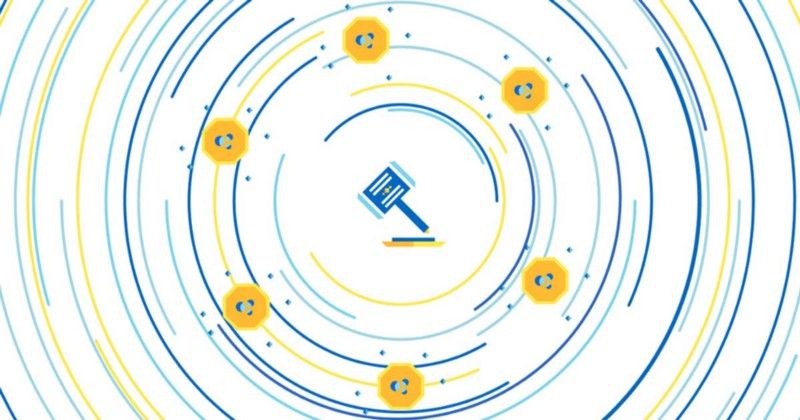An Introduction to Element’s Governance Model
At Element, our goal is to enable financial freedom and provide open access to financial products for people all around the world. From the…

At Element, our goal is to enable financial freedom and provide open access to financial products for people all around the world. From the beginning, Element has been designed to be an open, self-sustaining, community-governed protocol so that we can all build better, more stable, and efficient financial systems that stay true to the principles of decentralization that make DeFi so powerful.
Today, we’re both proud and excited to introduce our vision for Element’s governance system.
The State of Governance Today
Before we dive into the model, let’s briefly cover where we’re coming from as a team and the specific governance challenges we’re aiming to resolve.
Our team has spent years in the emerging field of decentralized governance. We’ve researched, designed, implemented, and secured industry-leading governance systems at projects including MakerDAO, 0x, and Aragon. We’ve been privileged to learn what it means to build these complex systems through success and failure. We know what’s been tried, what works, what doesn’t, and what we still have yet to understand. With that experience and continued research, we hope to bring new governance primitives to the fore and improve upon the lineage of governance innovation that came before us.
These are the specific governance challenges we’re aiming to resolve:
Lack of Governance Participation: the average governance token holder typically has little to no interest in voting more than once every few months or even once per year. For this same reason, many participants suffer from the effects of voter fatigue and apathy.
- Voter Fatigue: what voters experience under certain circumstances, such as being required to vote too often or when feeling disengaged.
- Voter Apathy: perceived apathy among voters in the governance system caused by a lack of interest in participation. This is often caused by low turnout among eligible voters when voting is optional and selecting a random option when voting is compulsory.
Plutarchy & Governance Attacks: in general token voting systems are inherently plutocratic, allowing those with the highest financial stake to have outsized ability to influence decisions. This makes governance systems more susceptible to governance/bribery attacks wherein the worst case, majority token holders (aka whales) can exert disproportionate control over a protocol. Another effect is that smaller token holders get crowded out and are unable to influence the direction of the protocol.
Capital Loss and Opportunity Costs: when you are required to lock your tokens in a governance system to vote or need to delegate tokens from a wallet, you miss out on opportunities to access further revenue through use as collateral for borrowing, earning yield, or even leveraging.
Activist Investors: proposing votes for personal gain and not the long-term success of the protocol.
Lack of Flexibility and Experimentation: using iterative decentralization as an excuse to avoid governance innovation and experimentation.
Element’s Governance Considerations
Many considerations helped us design our governance model, such as
- Flexibility — with constantly evolving protocols, there will always be room for improvement, building a governance system that is modular and flexible is important to prepare for the future.
- Delegation — governance systems should not necessarily be built on the expectation that all token holders want to vote on every change the system needs to operate successfully.
- Empowerment — enable passionate community participants to propose ideas and provide input and share their sentiment as proposals are put forward.
- Scalability — maximize the number of decisions that can occur in a given period that represent the community.
Element governance can vote on various categories primarily focused on socioeconomic topics such as treasury management and asset onboarding. The Element Protocol requires minimal input from voters so, where possible, parameter updates will be rare.
Element’s Governance Model and Vision
Our research has resulted in creating a simplified and participation-minimized form of governance. This is achieved through delegation (i.e. a refined form of representative democracy), capital-efficient voting, and a community entrusted Governance Steering Council (GSC).
We’ve designed a governance framework that anyone can easily participate in shaping the direction of Element. We decided to start with a simple base governance system that allows for improvements, flexibility, and experimentation while successfully maintaining the security and robustness of the protocol. The core governance system consists of on-chain vote counting, proposal thresholds, custom quorum requirements, and a timelock for executing security-critical votes. Additionally, we developed a new concept called Voting Vaults that allows governance users to delegate assets for governance while retaining the ability to use the same assets for any other purpose in DeFi, such as earning yield or leveraging.
Key Features
The Governance Steering Council (GSC)
Element governance community members have the choice to delegate their votes to anyone in the community that they align with most. Once a governance member (delegatee) within the Element governance community has reached the defined threshold of votes, they are officially a part of the GSC. Joining the GSC is therefore permissionless and is determined on a continuous, rolling basis. In a way, this acts as if the GSC members are elected in real-time by the governance community, reflecting the most current state of political dynamics.
The GSC will receive compensation for their vigilance over the protocol in order to incentivize the members to stay well informed, data-driven, and aligned with their delegated stakeholders.
As a member of the GSC, it comes with special authority and responsibilities. These include helping manage the off-chain governance process (Element proposal framework, etc), staying aligned with the community by being openly transparent and data-driven with their opinions, and having the power to oversee and spend the Element treasury for bug bounties, grants, and small spending allowances. Lastly, the GSC may also propose votes directly on-chain without the typical proposal threshold.
The GSC members will have to stay aligned and relate to the general sentiments of the public to maintain their positions on the council and to make the best decisions for their delegators. Otherwise, they may lose their delegated votes to another GSC member or new governance community member and fall off from the council (a failure for a specific GSC member to accrue delegated votes would indicate their disconnect to the general community of voters).
Overall, we believe the GSC will help mitigate the problem of users needing to navigate and participate in complex voting systems and reduce the need for the attention-taxing process of keeping up with the ever-changing/evolving system.
Capital Efficient Voting (Voting Vaults)
Voting Vaults provide the ability to assign voting power to specific types of tokens/positions. The result is beautiful — governance users can maximize capital efficiency while maintaining the ability to delegate or vote when the time comes. Voting vaults are designed to be upgraded, allowing for voting vault logic to be updated by governance and to avoid the pains that come with governance upgrade migrations.
The creation of a voting vault begins with defining a strategy for counting votes / providing voting power. Once the logic has been established, governance will vote to approve the method, and if successful, the integration is complete, and users can start voting!
Some of the possible voting vaults consist of:
- Locking Vault — simply lock tokens to get voting power
- Vesting Vault — locked tokens that still have voting power (this would use a multiplier for the unvested tokens, such as a 4:1 voting power for vested tokens)
- Compound/Aave Vault — use tokens as collateral and/or earn interest while keeping voting power.
- LP Vault — get voting power while providing liquidity.
- Ouroboros Vault — deposit Element principal tokens to get more votes than your current balance.
- Identity Verified Vault — verify your digital identity as a unique person to get voting power.
- L2-L1 Synthesis Vault — L2 posts balance tree hashes and L1 votes using the merkel balance proof of L2.
Flexible Spending and Optimistic Grants
Grants programs are the primary means by which projects fund ecosystem development and pay community contributors. Typically these programs are run by central groups with limited accountability to their communities but play an important role in curating grant recipients and holding them accountable.
We think it’s important for the Element community to run new funding experiments with the new primitives at our disposal to make our grants process open and efficient.
We envision these experiments taking two forms:
- Optimistic Grants — High budget grants with a high quorum, a timelock period, and clawback abilities by the GSC if the team does not deliver.
- Flexible Spending —Low budget grants with tiered quorums in proportion to budget with no timelock or clawback.
We’ll publish more details about the specifics in upcoming posts and seek feedback from the community as we continue to develop our grants program infrastructure.
What’s Next?
We’ve only scratched the surface of what we are working on in this post and will provide frequent updates on our progress. This includes content covering:
- Element Governance Core Principles
- Understanding the GSC
- Optimistic Grants Explained
- Governance Technical Architecture Breakdown
- The Element Proposal Framework and Off-chain Governance
- Security Roadmap Updates
We’re excited about the future of governance and want to hear from you! Join our #governance discord channel to talk more about this!
Watch our governance talk at EthCC, unveiling our governance model.
Join Our Community! 🧝
We want to hear from you! You can always ask questions in our Discord if you need any help, feedback, or just want to learn more.

